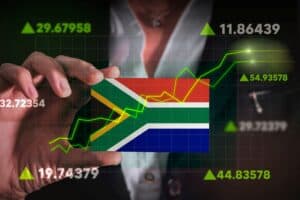Even tourists who want to visit SA often can't because they're not allowed to travel to countries where vaccinations are moving at a snail's pace.

The slow pace of the Covid-19 vaccine rollout in South Africa is negatively impacting South African businesses, warns the Covid-19 Business Rescue Initiative (Cobra).
This follows a similar alarm being raised by ratings agency Fitch on that the slow pace of the vaccine rollout means that Covid-19 pandemic will continue to pose risks for the economy well into 2022.
According to Bob Grewar, chief operating Officer at Cobra, some sectors of the economy had been hit more than others by the slow vaccine rollout. Tourism has been among the hardest hit sectors.
ALSO READ: Vaccine tourism: Here’s three countries you can get a Covid-19 jab
‘We have a situation where foreigners have been vaccinated but are not allowed to travel to countries whose populations are not yet vaccinated. We hope to see a major rebound of the inbound tourism sector once more South Africans have been vaccinated.’
Many foreign tourists are currently not allowed to visit South Africa because the country’s vaccination rollout has been slower than in their home countries.
The limited movement of people has led to other sectors being been affected by the slow vaccination process, he said.
“People doing more and more e-commerce based shopping rather than risking going out to brick-and-mortar stores. So, retailers, commercial real estate, etc continue to be negatively impacted by the slow rollout of vaccinations.’
Small businesses are in distress
Cobra has recently released a study looking at the impact of the Covid-19 on small-to-medium enterprises (SMEs). It found that 72% of SMEs were seeking business rescue in South Africa.
According to the group’s data, 72% of the businesses that approached Cobra for business rescue support since Cobra started in March 2020 were SMEs employing 1-10 people.
ALSO READ: Gauteng increases its Covid-19 vaccination sites
The data also revealed that SMEs based in Gauteng, the Western Cape and KwaZulu-Natal had been the hardest hit by Covid-19 and the consequent lockdowns on economic activity. The sectors bearing the brunt of this impact were retail, construction, manufacturing, tourism and hospitality.
“The devastating impact experienced by SMEs is hugely concerning for South Africa’s economic stability. SMEs play an essential role in growing our economy,” said Grewar.
Permanent Damage
Grewar said there were some sectors of the economy where the impact of the Covid-19 pandemic would be felt on a more long-term, or even permanent, basis.
According to Business Unity South Africa (Busa), SMEs employ 47% of our local workforce and contribute more than 20% to our country’s gross domestic product (GDP).
The primary driver of this has been the increased number of people working from home on a full-time or part-time basis.
“People are driving less, refilling their vehicles less often, buying fewer goods from garage-based convenience stores, servicing their cars based on time rather than mileage, replacing their tyres less frequently… ”
According to Fitch, South Africa’s medium-term growth will remain at less than 2%, the economy’s biggest Achilles heel when it comes to ratings.
Government’s attempt at fiscal consolidation may be hurt by this as reforms remained limited in scale and slow in implementation.






